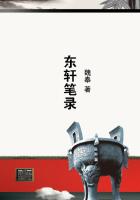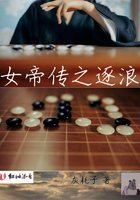It is weary of its own success. If any eager freethinker now hails philosophic ******* as the dawn, he is only like the man in Mark Twain who came out wrapped in blankets to see the sun rise and was just in time to see it set. If any frightened curate still says that it will be awful if the darkness of free thought should spread, we can only answer him in the high and powerful words of Mr. Belloc, "Do not, I beseech you, be troubled about the increase of forces already in dissolution. You have mistaken the hour of the night: it is already morning." We have no more questions left to ask.
We have looked for questions in the darkest corners and on the wildest peaks. We have found all the questions that can be found.
It is time we gave up looking for questions and began looking for answers.
But one more word must be added. At the beginning of this preliminary negative sketch I said that our mental ruin has been wrought by wild reason, not by wild imagination. A man does not go mad because he makes a statue a mile high, but he may go mad by thinking it out in square inches. Now, one school of thinkers has seen this and jumped at it as a way of renewing the pagan health of the world. They see that reason destroys; but Will, they say, creates. The ultimate authority, they say, is in will, not in reason. The supreme point is not why a man demands a thing, but the fact that he does demand it.
I have no space to trace or expound this philosophy of Will.
It came, I suppose, through Nietzsche, who preached something that is called egoism. That, indeed, was ******minded enough; for Nietzsche denied egoism simply by preaching it. To preach anything is to give it away. First, the egoist calls life a war without mercy, and then he takes the greatest possible trouble to drill his enemies in war. To preach egoism is to practise altruism.
But however it began, the view is common enough in current literature.
The main defence of these thinkers is that they are not thinkers; they are makers. They say that choice is itself the divine thing.
Thus Mr. Bernard Shaw has attacked the old idea that men's acts are to be judged by the standard of the desire of happiness.
He says that a man does not act for his happiness, but from his will.
He does not say, "Jam will make me happy," but "I want jam."
And in all this others follow him with yet greater enthusiasm.
Mr. John Davidson, a remarkable poet, is so passionately excited about it that he is obliged to write prose. He publishes a short play with several long prefaces. This is natural enough in Mr. Shaw, for all his plays are prefaces: Mr. Shaw is (I suspect) the only man on earth who has never written any poetry. But that Mr. Davidson (who can write excellent poetry) should write instead laborious metaphysics in defence of this doctrine of will, does show that the doctrine of will has taken hold of men. Even Mr. H.G.Wells has half spoken in its language; saying that one should test acts not like a thinker, but like an artist, saying, "I FEEL this curve is right," or "that line SHALL go thus." They are all excited; and well they may be.
For by this doctrine of the divine authority of will, they think they can break out of the doomed fortress of rationalism. They think they can escape.
But they cannot escape. This pure praise of volition ends in the same break up and blank as the mere pursuit of logic.
Exactly as complete free thought involves the doubting of thought itself, so the acceptation of mere "willing" really paralyzes the will.
Mr. Bernard Shaw has not perceived the real difference between the old utilitarian test of pleasure (clumsy, of course, and easily misstated) and that which he propounds. The real difference between the test of happiness and the test of will is simply that the test of happiness is a test and the other isn't. You can discuss whether a man's act in jumping over a cliff was directed towards happiness; you cannot discuss whether it was derived from will. Of course it was. You can praise an action by saying that it is calculated to bring pleasure or pain to discover truth or to save the soul.
But you cannot praise an action because it shows will; for to say that is merely to say that it is an action. By this praise of will you cannot really choose one course as better than another. And yet choosing one course as better than another is the very definition of the will you are praising.
The worship of will is the negation of will. To admire mere choice is to refuse to choose. If Mr. Bernard Shaw comes up to me and says, "Will something," that is tantamount to saying, "I do not mind what you will," and that is tantamount to saying, "I have no will in the matter." You cannot admire will in general, because the essence of will is that it is particular.
A brilliant anarchist like Mr. John Davidson feels an irritation against ordinary morality, and therefore he invokes will--will to anything. He only wants humanity to want something.
But humanity does want something. It wants ordinary morality.
He rebels against the law and tells us to will something or anything.
But we have willed something. We have willed the law against which he rebels.
All the will-worshippers, from Nietzsche to Mr. Davidson, are really quite empty of volition. They cannot will, they can hardly wish. And if any one wants a proof of this, it can be found quite easily. It can be found in this fact: that they always talk of will as something that expands and breaks out. But it is quite the opposite. Every act of will is an act of self-limitation. To desire action is to desire limitation. In that sense every act is an act of self-sacrifice. When you choose anything, you reject everything else. That objection, which men of this school used to make to the act of marriage, is really an objection to every act.
Every act is an irrevocable selection and exclusion. Just as when you marry one woman you give up all the others, so when you take one course of action you give up all the other courses. If you become King of England, you give up the post of Beadle in Brompton.














